Hey,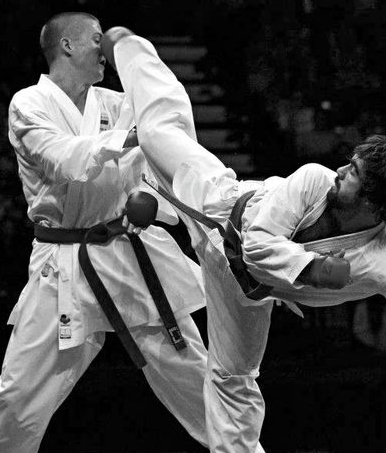
Did I tell you the story of how I “won” my first – and only – medal at the national championship in kumite (fighting) back in the days?
No?
It’s so embarrassing…
To make a long story short; with a hefty dose of youthful enthusiasm and a soon-to-be black eye, I somehow managed to bulldozer my way through four opponents and, without scoring a single real point, win each and every fight to finally get a shiny medal at the end of the day.
Sounds unreal, right?
So, how the heck did I do it?
Well, let’s just say I had a habit of walking into punches and kicks!
A habit that quickly got my opponents enough fouls to have them disqualified, making me the “winner” of all fights up until the semi-finals (where the medical doctor made me surrender), leaving me with a coveted bronze medal at the end of the day.

I still laugh hard when I think about that day!
Anyway, what I’m trying to illustrate with this story is that a) if winning is the only thing you care about, you can always ‘game the system’ in some way, but more importantly that b) if you have bad habits, they can sometimes work to your advantage even if you don’t have the willpower or know-how to actually change them.
But don’t follow my lead.
A black eye is cool in high-school – not at the office!
So let’s talk about habits for a second.
Because, if you ask me, that’s what it all boils down if you want to achieve success – whether it’s Karate or life in general.
The #1 thing that sets apart high-achievers and Type A personalities from the rest of us is not some “magical” willpower gene, but simply the fact that they have habitualized and automatized more important skills/tasks than the rest of us.
That’s today’s topic.
Habits.
More correctly, the universally awesome habits that great Karate fighters seem to have in common, but rarely teach – because it’s such a natural and easy thing for them.
Now, based on my intro story, you’ve probably figured out that I’m not the greatest fighter on earth.
But I am a pretty good observer.
And when it comes to habits of highly successful Karate fighters, there are 3 particular ones I’ve observed in world-class fighters that I’ve trained with and interviewed, like Junior Lefevre and Luigi Busa.
Check it out:
Success Habit #1: Keep Mobile

This habit is first for a good reason.
One thing that all great fighters figure out early is that you’ve got to be able to move effortlessly in any direction, at any given time, during a fight.
In other words, you’ve got to be mobile.
- Oh, your arms are tired? So let your guard down then.
- And hey, sure, your mind might get tired too. So stop thinking then.
- But NEVER EVER let your legs get tired – because they are your ONLY ticket out of a slaughter.
Highly successful Karate fighters know that footwork and body movement (ashi-sabaki and tai-sabaki) are the foundation of not getting your butt kicked, which is why they spend a lot of time learning, repeating and perfecting legwork.
Your lower body is literally a powerhouse, and should be used as such – both for attacking and evading.
Perhaps the importance of staying mobile is best summed up by the grandmaster of Shotokan Karate:
“Do not think of winning; rather, think of not losing”
– Funakoshi Gichin (1868-1975)
Your mobility dictates this.
Keep moving to keep the distance and keep safe.
The ability to move around freely in a fight is second nature to great fighters, and you should try to make it a habit yourself.
In the words of Muhammad Ali: “Float like a butterfly, sting like a bee.”
Your hands can’t hit what your eyes can’t see.
Success Habit #2: Stay Playful

Next up…
The day you stop exploring new opportunities for setting up strikes, kicks, punches or takedowns is the day you stop growing as a fighter.
A stale mind produces sad results.
In Karate and life.
So, what every great fighter has understood, is that in order to truly evolve you need to constantly keep a playful attitude towards fighting.
Don’t get me wrong; a fight should never turn into a circus.
You should definitely keep in mind that your opponent isn’t there to sell you Girl Scout cookies or give you jumping mid-air high-fives.
But that doesn’t mean you should cement your mindset!
“Logic will get you from A to Z; imagination will get you everywhere.”
– Albert Einstein (1878-1955)
Keeping an open and playful attitude, both technically (“let’s try this technique!”), strategically (“what happens if he does like that?”) and physically (“crap, that hurt!”) is not only one of the most effective ways of achieving higher success in kumite, but also one of the most enjoyable ways.
Imagine that – you can actually enjoy fighting!
The hard part is to make playful and unpredictable fighting a habit – and not just something you do when you’re bored…
Or drunk.
Success Habit #3: Be Committed
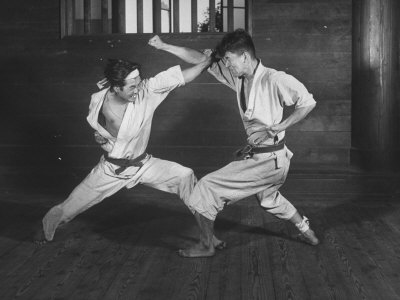
Lastly…
The term “to commit”, has become something of a buzzword, especially in MMA, for a very good reason.
For every technique you throw in a fight, there should only be one purpose.
Either:
1. To hit.
Or:
2. To set up a hit.
Yet people keep doing pointless stuff like sloppy jabs or spinning hook kicks (!) in the air in front of their unimpressed opponent, with poor timing and questionable distance.
Old habits die hard.
What every great Karate fighter knows is that energy is a precious thing – and that the person who can achieve maximum effect with minimum effort quite often ends up on the winning side of a fight.
Thus, a technique without purpose is a technique wasted.
And it all boils down to physical & mental committment.
The purpose of a technique should always be to either hit your opponent, or to set up (feint, lure etc.) the next technique; which, in turn, should either hit the opponent or set up the next technique.
And so forth.
In other words, committment to whatever you are doing (attacking, moving, defending) is the concept you need to habitualize in order to stop wasting time, start feeling safe & finish the fight.
Reach for those last extra inches in each attack, dude!
Either you do it, or you don’t.
___________
The End.
What do you think?
Again, I’m not the new Chuck Norris but I’ve seen some really great fighters in my days – and these three habits (1. Mobile, 2. Playful, 3. Committed) are just a few of the numerous habits I’ve noticed to be universal in the most successful Karate kumite players out there.
Because, again, the thing with successful people isn’t that they’re necessarily better than you and me.
They’ve just figured out that some stuff works better when it’s automatized – saving precious brain space and willpower for more important stuff.
Both in Karate and life.
Good luck!
“We are what we repeatedly do. Excellence, therefore, is not an act, but a habit.”
– Aristotle
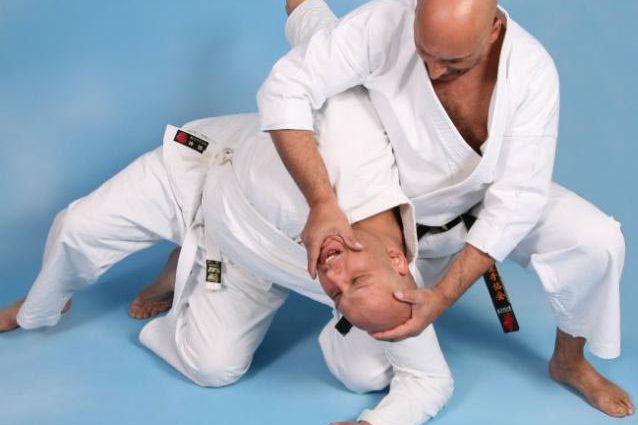
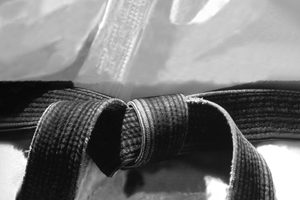
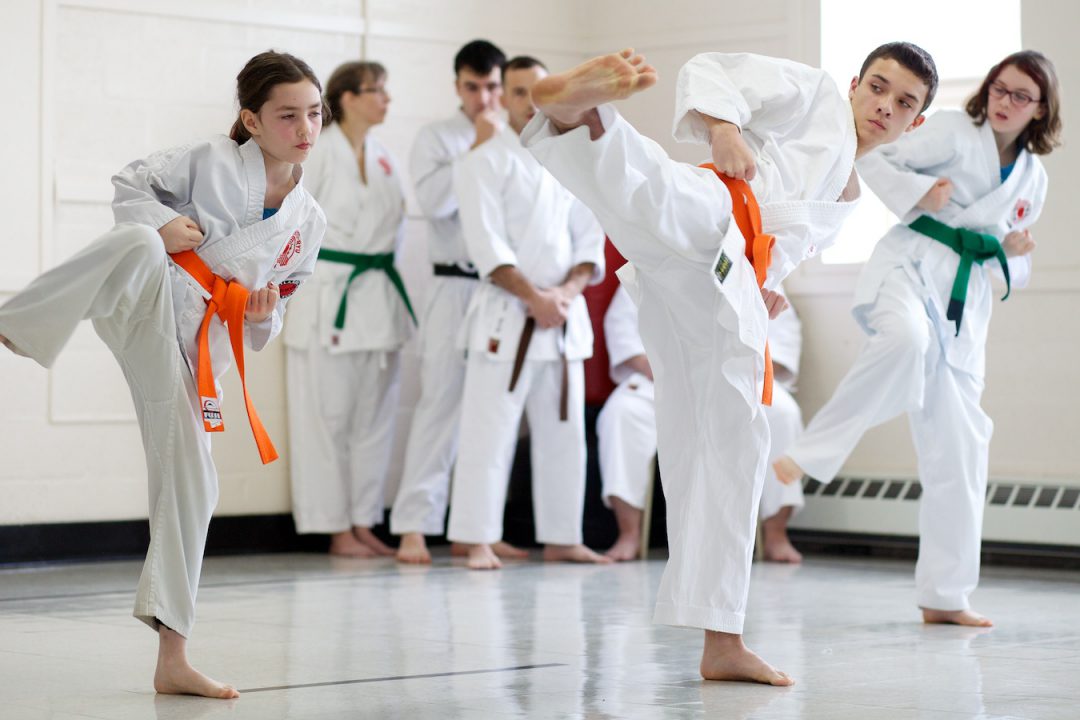
24 Comments